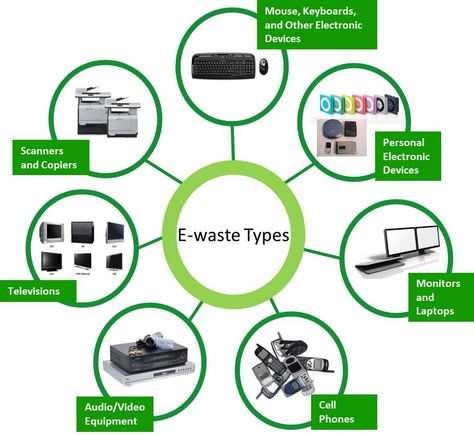E-waste policies are badly required in Pakistan. In today’s digitally dependent world, E-waste management is an urgent issue especially in countries like Pakistan where the use of electronic devices (in different ways) is ever increasing. There are some areas like Karachi in Pakistan that are rich in contaminated water and air due to the increasing businesses of recycling e-waste.
There are millions of people (including educated and uneducated) who have to earn their livelihood by discarding electronics like mobile phones, laptops and refrigerators, and this way of employment is not only harming the health those indulged in this business but also it is dangerous for those who are surrounding them.
The UN has recently urged for better recycling of the often hazardous rubbish produced by discarded electronics that is piling up worldwide.
According to a report by the UN’s International Telecommunication Union, the UN University (UNU) and the International Solid Waste Association 2016, 44.7 million tonnes of e-waste was generated around the world (an alarming eight percent from two years earlier). The quantity of the waste generated was equivalent of 4,500 Eiffel Towers and the number was expected to balloon significantly over the coming decades.
People indulged in the business of recycling E-waste are exposed to different kinds of dangerous gases and rays that are causing serious health issues but they have no other way to get their bread so they do what they are well aware that is dangerous for their generations.
Must Read: The government finally appoints Muhammad Naveed as an acting Chairman PTA
By 2021, the world will likely be cluttered with a full 52.2 million tonnes of e-waste, consisting mainly of fridges, washing machines and other domestic appliances, mobile phones and computers etc. Recycling of this waste with unmasked faces, gloves-less hands and glasses free eyes would cost us more than the real price of the metals acquired by this waste.
Though the business of recycling E-waste is much more in favour of Pakistan’s economy as a report presented an economic argument for more recycling said that the total value of all raw materials present in e-waste, including gold, is estimated to be worth up to 55 billion euros ($64.6 billion), entrepreneurs should be kind enough to those people who are getting this worth to them and precautionary measures should be taken for the safety of their health.
Like other countries, Pakistan should also adopt e-waste management policies so that the waste doesn’t waste the lives. E-waste. A report discovers that 66 percent of the global population, of 67 countries, is covered by adopting e-waste policies, and it is up from 44 percent in 2014.
The most valuable remedy for reduction or total control of the e waste issues is the ownership of devices and appliances by electronic companies to provide consumers with replacements when needed. In this way, they would have an incentive to properly collect and recycle the e waste and improper disposal and storage of the equipment would substantially decrease, or ideally disappear. But livelihood of millions of Pakistanis will be lost with adoption of this strategy, because this is the country where people have to commit suicides due to joblessness even after getting engineering degrees from renowned universities.




